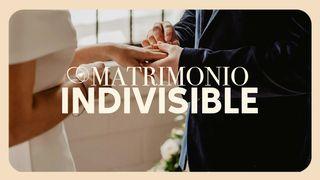Race. Grace. Justice. Jesus. Muestra

What happened to us?
What happened to us?
If the only two things you knew were the first page of the Bible and the first page of the newspaper, you would cry out with that question—What happened to us?
From one man, God made us (Acts 17:26). He made us in his image—as lovingly united as the Father is to the Son and the Son is to the Spirit and the Spirit is to the Father. Yet what we see around us doesn’t look all that much like the love of the Trinity. Tragic abuses of power. Bricks thrown unjustly to rage against injustice. Bias against black people. Signs that claim, “All cops are (words that we won’t publish)!” Systems whose roots run deep with racism. Accusations and assumptions filling the comment section of every other video on the internet.
Seriously, what happened to us?
The Bible has an answer to that question—sin. You can read the whole story in Genesis chapter 3, but here’s the gist of it. Our original ancestors made a choice that changed us. Our hearts, originally wired to look up to God in worship and out to our neighbor in love, turned inward to look at themselves. “Me first!” became the default setting of sinful people. “For just as through the disobedience of the one man the many were made sinners . . .” (Romans 5:19). Many sinners. No wonder there are still so many stories.
That’s what happened to us.
Sin is the system beneath the system, the selfish structure that supports every story that breaks our hearts. When a police officer abuses his or her power, that’s the me-first mess of sin. When a community screams in the faces of officers who honestly long to serve and protect, that’s the me-first mess of sin. When a citizen has no compassion for “those people,” that’s the me-first mess of sin. When “love your enemy” is tossed aside to give full expression to my pain, that’s the me-first mess of sin. When a community or a precinct protects its own in spite of justice, that’s the me-first mess of sin. When I am quick to speak and slow to listen, that’s the me-first mess of sin. When I dodge an uncomfortable issue by focusing on another issue, that’s the me-first mess of sin.
What is racism besides the belief that people like me are first? What is injustice besides the acting out of that belief? What is my sin besides putting myself first, before you, before us, before God? “Me first!” is a mess we all make.
In no way am I minimizing the horrors that that particular video footage reveals, as if we should consider injustice normal. Nor am I ignoring the changes that justice demands, as if Christians should just wait around for Jesus to come back. I am saying that sin should make sense to all of us. I know all too well what it’s like to put myself first—before my wife, before my daughters, before my parents, before my neighbors, before God.
Don’t you?
Unless we recognize our common problem, we will always compare our communities. “Those people” will be the true villains, and “our people” will be the true heroes. But sin doesn’t stick to certain neighborhoods. It isn’t reserved for certain races.
“All have sinned and fall short of the glory of God, and all are justified freely by his grace through the redemption that came by Christ Jesus” (Romans 3:23,24).
Those alls are all we need to take one step closer to humility. And humility is the only thing that will eventually restore our unity. And isn’t unity what we so desperately need?
Today, before you post or protest, draw near to God. Humbly admit your sins. Confess the mess that your me-first heart has made. Cling to Jesus alone for your identity and worth.
Then you’ll be ready to seek justice, not as a holier-than-thou champion of justice but as a humbled-yet-thankful friend of Jesus.
Acerca de este Plan

This reading plan is about the intersection of race, grace, justice, and Jesus. Jesus provides unique hope as we deal with the heartbreaking headlines, hope that is certain about the future without overpromising answers in the present. Jesus’ teaching is equally empowering and humbling, forcing us to look into the mirror and then back to the cross and then across to our neighbor.
More






